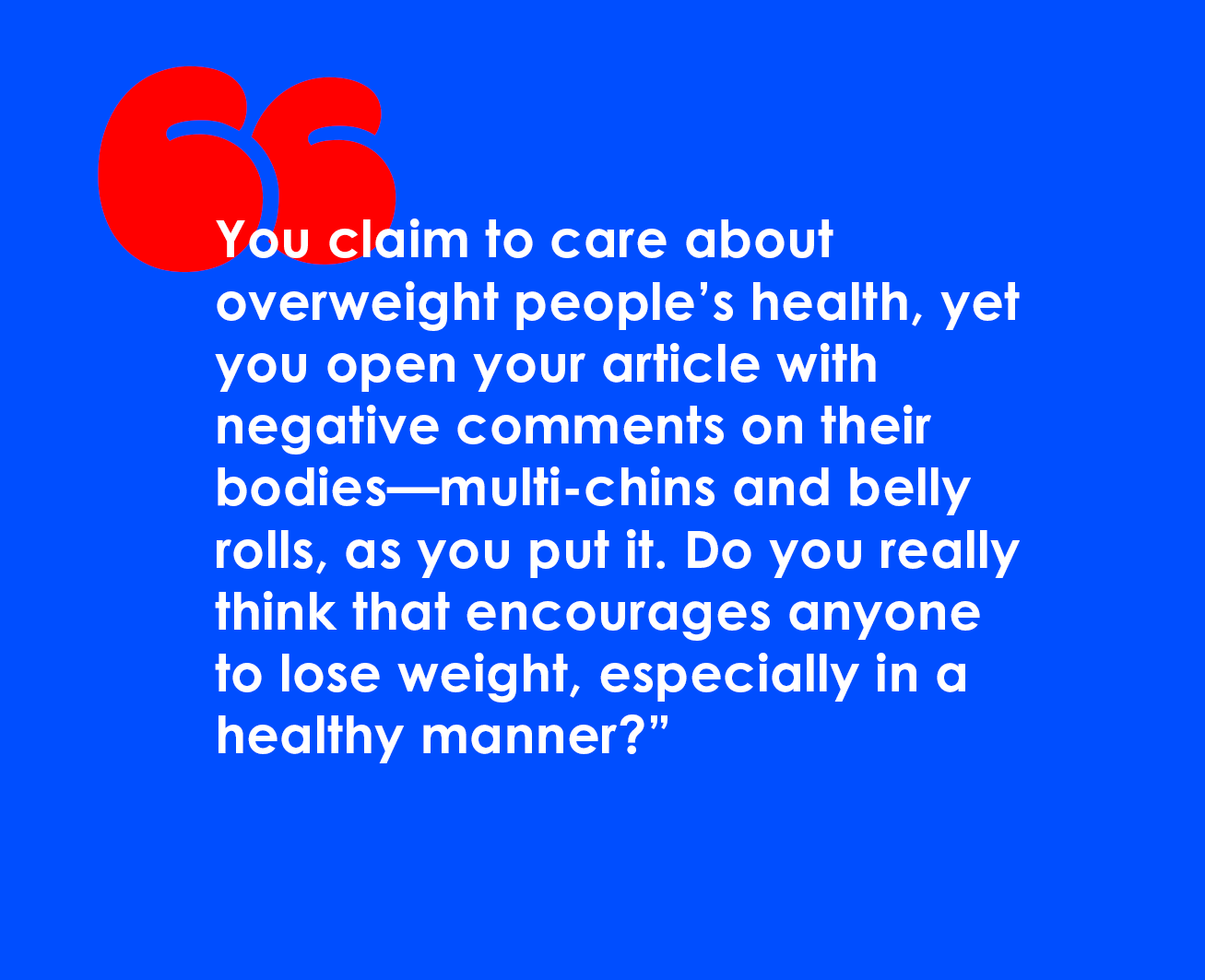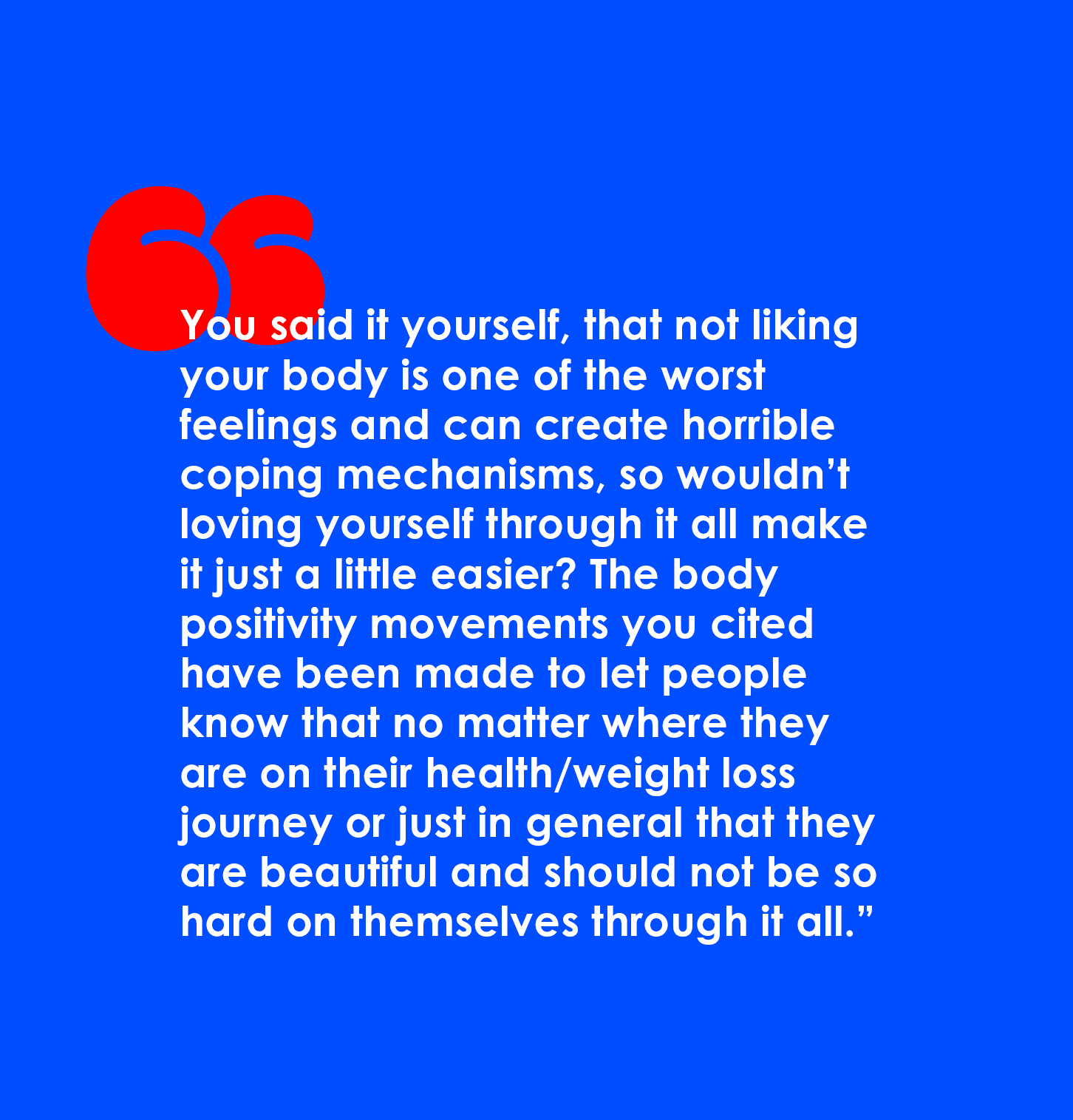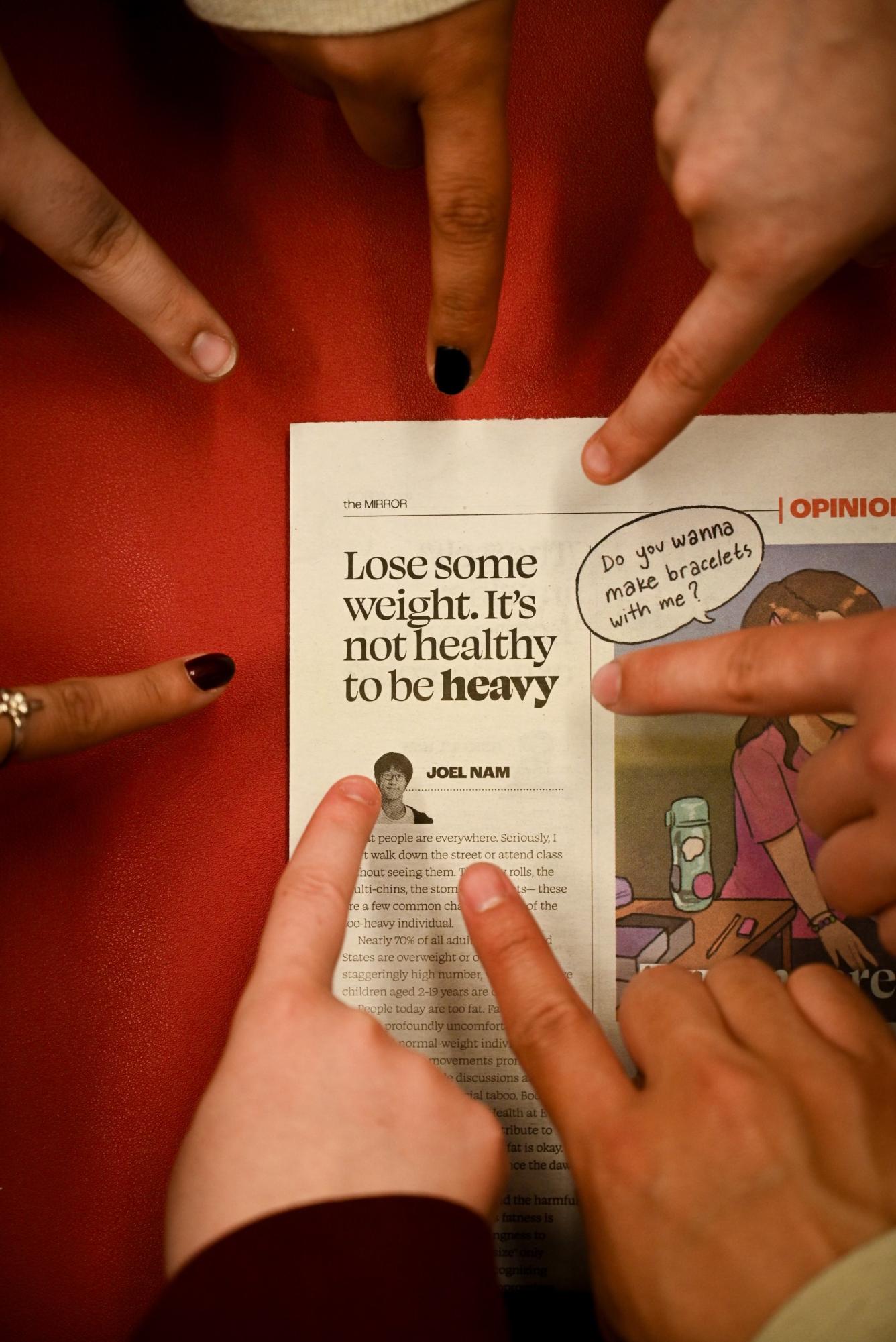Clearing up the controversy: A writer’s response to criticism

I intended for my article to spark a realization, followed by positive change, or to encourage those in the process of making that change. I understand how the opening paragraphs may feel unnecessarily harsh and may have caused offense. I apologize to readers that were hurt by my words. However, my introduction was meant to provide a first-person perspective of what I see in everyday life—people suffering from obesity. My comments on the physical characteristics of obese individuals were part of that first-person perspective and were not meant to attack obese people.

As harsh as this may seem, each person is responsible for their own reactions to triggers in their environment. While I certainly didn’t intend for my writing to trigger eating disorders or unhealthy coping mechanisms in readers, I intentionally wrote the article the way I did because I believe a passive approach to this touchy subject will not lead to meaningful change.

There are indeed cases in which metabolism, genetics, medical conditions, hormonal imbalances, income and other factors can affect a person’s weight. However, these factors only truly inhibit a small percentage of peoples’ ability to make change. Such cases make up a small percentage of most obese individuals. Physical, positive change in the form of losing excess weight is wholly possible and attainable for nearly all fat people. I agree that fatness doesn’t necessarily determine one’s health. A fat person who exercises regularly can easily be more healthy than a skinny person who stays inside all day. However, fatness does indicate unhealthiness to an extent, and the fact that obesity plagues modern society is a cause for great and immediate concern.

I agree. If my writing communicated the message that weight is the sole determinant of good health, I apologize for the confusion. That is not true. However, weight is a very important indicator.

We are all entitled to our own opinions. Personally, the idea of “Don’t say anything that isn’t nice” is one I refuse to subscribe to, and one that I hope is never promoted to society. Not all things that necessarily deserve to be addressed are pleasant and easy to take in. I care because I care about people’s well-being. I have suffered from obesity, and I witness friends and family suffering from obesity every day. I care because I am aware that obesity brings along a variety of harmful health complications.

My intent was not to single out, embarrass or offend an entire group of people. I recognize that is one way my article could have been received. I understand that my writing may have felt unnecessarily harsh; to those that I offended, I apologize. However, the purpose of this article was to bring light to the fact that in today’s society, obesity is incredibly widespread, present and harmful. The opening paragraphs in particular, which I am aware are subjects of criticism, were meant to show the cold, hard truth of the matter. We live in a world where obesity is rampant and there are few motions to stop it. It was my choice to present the information in the way I did because people need to realize this is not an issue that will be solved by reassuring everyone that being immensely overweight is okay. It is not. Does this mean people shouldn’t love themselves? Absolutely not. But self love shouldn’t impede positive change.

Never in my article do I say that “people who are unhealthy shouldn’t feel confident” or that “people who are unhealthy can’t love themselves.” This article is meant to inspire a realization followed by change, and to encourage those who are in the process of making that change. Self-care takes many forms, both mental and physical. Being complacent with dangerously high weights, which is the message that society has continued to promote, is not one of these forms. Dangerously high weights aren’t okay, regardless of whether or not obese individuals believe that to be true. If one believes that drinking nonstop, smoking many packs of cigarettes a day or ingesting drugs is harmless, should society be complacent and encourage that lifestyle? I hope we can agree that those are destructive behaviors that bring preventable suffering into peoples’ lives. In the same way, promoting obesity and being complacent at dangerously high weights is not okay.

Absolutely it would. Perhaps you inferred this when I spoke about my personal experience with being overweight. But that is just that: my personal experience, in which I did not love the person I saw in the mirror. I wish I had more love for myself during my weight loss process, and I encourage those who seek a healthier lifestyle to love themselves. However, the vast majority of modern fat acceptance and body positivity movements I have cited are not letting people know that no matter where they are on their health/weight loss journey, they are beautiful. How can they, when it isn’t a journey, but stagnation, that is being promoted? The accompanying diagram is an accurate representation of the message that most body positivity movements on social media and other online platforms spread. I believe the message to be harmful because it promotes being complacent at dangerously high weights. The message is appealing, yet destructive. There is no call for making healthy changes, nor attempts to lose weight. Instead, it promotes living however you want even if it means feeding into self-destructive behaviors. If the diagram instead showed this individual doing what he could to live a physically healthier lifestyle—like going for a walk or choosing a healthier diet— I would be the first to applaud this modern version of body positivity.
I hope this follow-up on my obesity article in the Spring newspaper issue provides a better understanding of my intent and thought process. For readers who are interested in discussing this topic further, I encourage you to reach out to me or explore further on your own. As uncomfortable and uncommon as open talks about obesity are in today’s day and age, I believe change cannot happen without action. And as far as obesity’s place in society goes, we are in desperate need of change.
For those interested, more Q&A excerpts are linked below.
Your donation will support the student journalists of Van Nuys Senior High School. Your contribution will allow us to purchase equipment and cover our annual website hosting costs.




